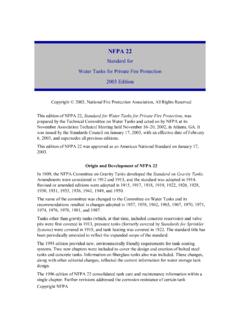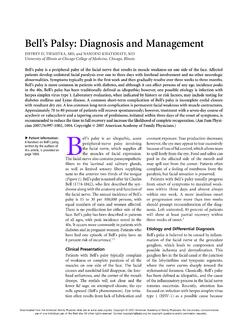Transcription of Practical Research Methods
1 Practical Research MethodsPractical books that inspireExams are Easy When You Know HowChange your attitude, thinking and technique and never fail anexamEssay to Write?Make it good, make it easy, make it fun!Writing an AssignmentEffective ways to improve your Research and presentation skillsCritical Thinking for StudentsLearn the skills of critical assessment and effective argumentWriting Your DissertationHow to plan, prepare and present successful workhowtobooksPlease send for a free copy of the latest catalogue:How To Books3 Newtec Place, Magdalen Road,Oxford OX4 1RE, United Kingdomemail: Research MethodsA user-friendly guide to masteringresearch techniques and projectsDR CATHERINE DAWSON howtobooksFor my DadFirst published in 2002 byHow To Books Ltd, 3 Newtec Place,Magdalen Road, Oxford OX4 1RE.
2 United : (01865) 793806. Fax: (01865) : rights reserved. No part of this work may be reproducedor stored in an information retrieval system (other than forpurposes of review) without the express permission of thepublisher in writing.#2002 Dr Catherine DawsonBritish Library Cataloguing in Publication DataA catalogue record for this book is available from the BritishLibraryCover design by Baseline Arts Ltd, OxfordProduced for How To Books by Deer Park ProductionsEdited by Diana BruetonTypeset by PDQ Typesetting, Newcastle-under- lyme , and bound by Cromwell Press, Trowbridge, WiltshireNOTE: The material contained in this book is set out in goodfaith for general guidance and no liability can be acceptedfor loss or expense incurred as a result of relying in particularcircumstances on statements made in the book.
3 The laws andregulations are complex and liable to change, and readers shouldcheck the current position with the relevant authorities beforemaking personal How to Define Your Project1 Asking questions1 The five Ws 4 Summary132 How to Decide Upon a Methodology14 Understanding the difference between qualitative andquantitative research14 Summary22 Further reading233 How to Choose Your Research Methods27 Interviewing27 Focus groups29 Questionnaires30 Participant observation32 Choosing your methods33 Summary37 Further reading384 How to Conduct Background Research40 Primary Research and secondary research40 Summary45 Further reading465 How to Choose Your Participants47 Sampling47 Sample size49 Summary53 Further reading546 How to Prepare a Research Proposal55 The contents of a
4 Proposal56vWhat makes a good proposal?60 Reasons why Research proposals fail61 Summary62 Further reading637 How to Conduct Interviews64 Methods of recording64 The interview schedule67 Establishing rapport70 Asking questions and probing for information71 Summary73 Further reading758 How to Conduct Focus Groups76 The role of the moderator77 Recording equipment80 Choosing a venue81 Recruiting your participants82 Summary84 Further reading859 How to Construct Questionnaires87 Deciding which questionnaire to use87 Wording and structure of questions89 Length and ordering of questions93 Piloting the questionnaire95 Obtaining a high response97 Summary99 Further reading10010 How to Carry Out Participant Observation101 Gaining access102 Ethics103 Collecting and analysing
5 Information105 Withdrawal from the field107 Summary107 Further reading10811 How to Analyse Your Data110 Deciding which approach to use110vi/ Practical Research METHODSQ ualitative data analysis111 Quantitative data analysis121 Measuring data126 Summary128 Further reading12912 How to Report Your Findings131 Written reports131 Written report format134 Journal articles140 Oral presentations142 Summary143 Further reading14413 How to be an Ethical Researcher146 Treating participants with respect146 Overt and covert research147 Code of ethics150 Summary154 Further reading155 Index157 CONTENTS /viiList of IllustrationsTa bl e s1. The focus group method: advantages anddisadvantages302. Sources of background information453. Sampling techniques504.
6 Sampling dos and don ts525. Survey timetable596. Research budget607. Recording Methods : advantages and disadvantages 668. Strategies for dealing with awkward situations799. Open and closed questions: advantages anddisadvantages8810. Using computers for qualitative data analysis:advantages and disadvantages12211. Age of respondents12412. Making presentations: dos and don ts142 Figures1. Personal profile form962. Interview summary form1133. Focus group summary form1144. Qualitative data analysis continuum1155. Example list of references1386. Code of ethics153viiiPrefaceThis book is a Practical , down-to-earth guide for peoplewho wish to conduct Research . It is aimed at those newto Research and assumes no prior knowledge of the issuescovered.
7 It will also appeal to those people who have al-ready conducted some Research and who are interested infinding out more about other Research Methods that areavailable to the purpose of this book, Research is defined as thedeliberate study of other people for the purposes of in-creasing understanding and/or adding to knowledge. Thisdeliberate study could cover many different areas. As a re-searcher, you might be interested in attitudes and beha-viour why do people think in a certain way and whydo they behave in a certain way? Or you might be inter-ested in numbers how many people use a service? Per-haps you need to try to predict how this number ofpeople could be increased so that you can obtain fundingfor your service. Or you might be fascinated by the perso-nal history of a neighbour and have a burning desire torecord her history and pass it on to all have different reasons for conducting of us might have to undertake a project as part ofour course work.
8 Others might have to conduct a study aspart of our employment. Some of us may be fascinated bysomething we ve observed and want to find out more. Thisbook offers advice on how to turn your ideas into a work-ixable project and how to keep motivation levels high, espe-cially if you have no real inclination to become a Research -er. It discusses the issues involved in thinking about yourresearch and defining your project, before moving on tothe Methods how do you actuallydoyour Research , ana-lyse your findings and report the results?Over the decades there has been a great deal of discussion onwhat constitutes Research , how it should be conducted andwhether certain Methods are better than others. AlthoughI have touched upon some of these issues in the relevantchapters, it is not possible or desirable to go into any greaterdetail in this book.
9 Therefore, I have included further read-ing sections at the end of the relevant chapters for those ofyou who wish to follow up these have been a researcher since undertaking an MA in SocialResearch in 1987. Working within both further and highereducation and as a freelance researcher, I have been involvedin avarietyof projects in the areas of education, housing andcommunity Research . I have taught Research Methods toadults returning to education and conducted in-house train-ing for employees who need to carry out their own a successful researcher is a continual learningprocess in which we all make mistakes. So don t worry ifyour first project doesn t run as smoothlyas you might , remember that undertaking a Research project canbe fascinating, rewarding and exciting I hope that you en-joy it as much as I have done and I wish you every success inyour Catherine Dawsonx/ Practical Research METHODS1 How to DefineYour ProjectBefore you start to think about your Research , you need toask yourself a few QUESTIONSWhy have I decided to do some Research ?
10 If the answer to this question is because you have been toldto do so, either by your tutor or by your boss, you need tothink about how you re to remain motivated throughoutyour project. Research can be a long process and take upmuch of your time. It is important to stay interested inwhat you re doing if you are to complete your project suc-cessfully. However, if you want to conduct some researchbecause something has fascinated you, or you have identi-fied a gap in the Research literature, then you are lucky andshould not have a problem with can I remain interested in my Research ?The obvious answer to this is to choose a topic which in-terests you. Most of you do have this choice within thelimitations of your subject be creative and think aboutsomething which will fascinate you.


